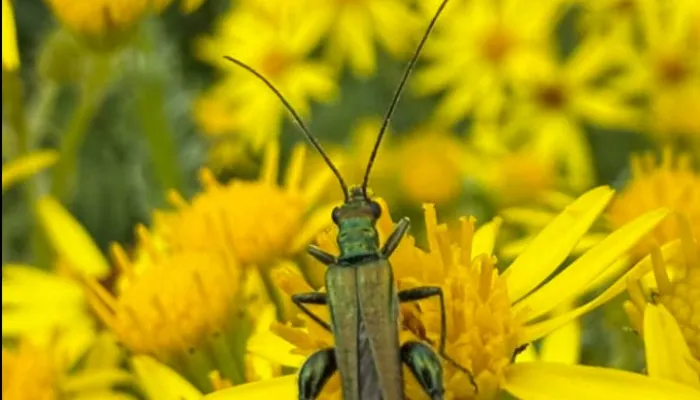Find out how to identify pollinators and learn about their ecology.
Pollinators are animals which transfer pollen from the male to the female parts of a flower, enabling plant fertilization and reproduction. This process is essential for the production of fruits and seeds. Pollinators therefore have a vital role in supporting plant populations, ecosystems, and human food supplies. Common pollinators include various species of bees, beetles, flies, butterflies, moths, and wasps.
The morning will be spent in the classroom learning about the ecology of pollinators. There will be a further presentation focusing on the identification of the more common pollinators.
After lunch, we will explore the wildlife garden at Tyland Barn. There will be plenty of time to practise catching pollinators with a net and having a closer look at them in the field.
It is expected that by the end of the day you will:
- Have gained a better understanding of the ecology of pollinators
- Be able to recognise some of the more common pollinators
- Be confident catching and examining pollinators in the field
Suitable for beginners
Led by Rosie Bleet, Ecological Evidence and Citizen Science Lead for Kent Wildlife Trust
-
Cafe/refreshments
-
Disabled parking
-
Toilets
MORE INFORMATION
What to Bring:
Hand lens, net and pots (all will be provided but can bring own), notebook, packed lunch and drink. There is now an independent café in the Barn which is usually open on Saturdays so you may be able purchase additional refreshments there.
Additional booking information:
Please note that if the weather is bad, the plan for the day may get swapped around to accommodate being outside in the best weather. If it is going to be bad for the whole day the afternoon session will involve having a closer look at pollinator specimens under a microscope and using identification keys.
Tyland Barn is a wheelchair accessible site, including areas of the wildlife garden, which is fairly flat and has some hard surfaced paths.

